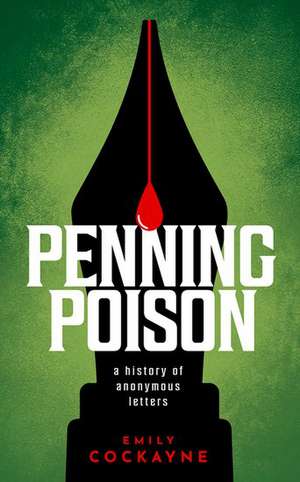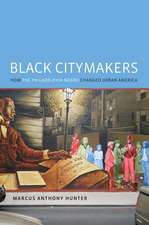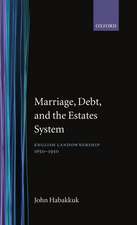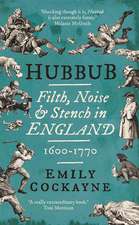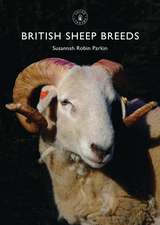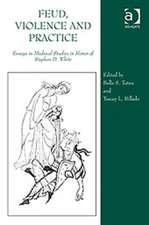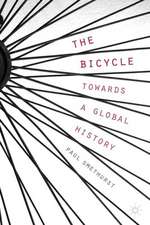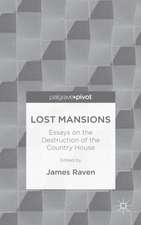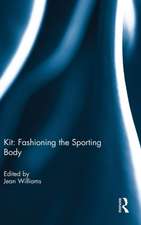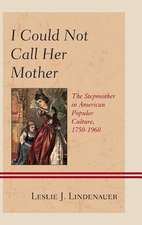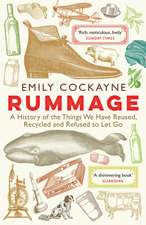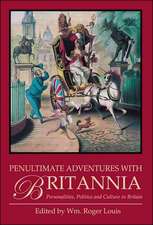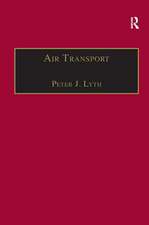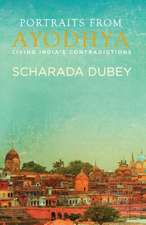Penning Poison: A history of anonymous letters
Autor Emily Cockayneen Limba Engleză Hardback – 14 sep 2023
Preț: 106.74 lei
Preț vechi: 127.16 lei
-16% Nou
Puncte Express: 160
Preț estimativ în valută:
20.42€ • 21.07$ • 17.04£
20.42€ • 21.07$ • 17.04£
Carte disponibilă
Livrare economică 22-28 februarie
Livrare express 19-25 februarie pentru 48.69 lei
Preluare comenzi: 021 569.72.76
Specificații
ISBN-13: 9780198795056
ISBN-10: 019879505X
Pagini: 320
Ilustrații: 35 half tones
Dimensiuni: 145 x 220 x 30 mm
Greutate: 0.44 kg
Editura: OUP OXFORD
Colecția OUP Oxford
Locul publicării:Oxford, United Kingdom
ISBN-10: 019879505X
Pagini: 320
Ilustrații: 35 half tones
Dimensiuni: 145 x 220 x 30 mm
Greutate: 0.44 kg
Editura: OUP OXFORD
Colecția OUP Oxford
Locul publicării:Oxford, United Kingdom
Recenzii
A well-researched and wide-ranging survey of a fascinating and murky area in the history of letters.
Gripping...full of one engaging story after another
Emily Cockayne, one of the leading social historians of our times, has written a truly original history of anonymous letter writing. With her unparalleled skills of exploration and empathy, she has provided a brilliant and beautifully written account of neglected phenomenon in all its social complexity.
As Emily Cockayne shows in this fascinating history, harassment by anonymous letters has often escalated into criminal proceedings in Britain. Cockayne has an eye for the telling details of everyday life, and her sensitivity to motive and human frailty allows her to see things that the detectives who investigated these cases in the nineteenth and early twentieth centuries missed.
This book is a great fit for libraries and for private readers who have an interest in such true crime mysteries.
A diligent and fascinating study of a pervasive social phenomenon.
[A] fascinating account, not just of poison pen letters themselves, but also of the evolution of the necessary postal networks, technology, forensics and policing. Whether you find the realisation refreshing or dispiriting, it appears that the anxieties of the internet age are merely today's version of a longstanding, spiteful tradition.
Emily Cockayne has done a tremendous job in charting [poison pen letters]...the examples contained within are very real, and show that anyone who receives a nameless note from out of the blue is bound to find it at the very least unsettling, if not chillingly sinister.
Wonderful...If the subject of her book is poison, then Cockayne's treatment of it is the antidote.
[A] revealing history of poison pen letters.
Emily Cockayne takes the reader through the history of the anonymous letter writing from 1760 to 1939, romping through gossip, tip-offs, threats, obscenity, libels and more. They are by turn frightening, scandalous and bizarre, and make for a thrilling read as Cockayne writes with an academic's attention to detail and a novelist's lightness of touch.
An entertaining and original social history of Britain.
Positively bulging with evidence.
Fascinating but also subtly affecting ... Penning Poison reveals, there is nothing new under the sun-or between the lines.
A lively survey of the practice of sending anonymous letters ... By examining individual cases - the how, when, where and, most important, why - Cockayne has produced something thought-provoking and humane. The opposite of a poison-pen letter, really.
Penning Poison is a painstaking, energetic history.
Gripping...full of one engaging story after another
Emily Cockayne, one of the leading social historians of our times, has written a truly original history of anonymous letter writing. With her unparalleled skills of exploration and empathy, she has provided a brilliant and beautifully written account of neglected phenomenon in all its social complexity.
As Emily Cockayne shows in this fascinating history, harassment by anonymous letters has often escalated into criminal proceedings in Britain. Cockayne has an eye for the telling details of everyday life, and her sensitivity to motive and human frailty allows her to see things that the detectives who investigated these cases in the nineteenth and early twentieth centuries missed.
This book is a great fit for libraries and for private readers who have an interest in such true crime mysteries.
A diligent and fascinating study of a pervasive social phenomenon.
[A] fascinating account, not just of poison pen letters themselves, but also of the evolution of the necessary postal networks, technology, forensics and policing. Whether you find the realisation refreshing or dispiriting, it appears that the anxieties of the internet age are merely today's version of a longstanding, spiteful tradition.
Emily Cockayne has done a tremendous job in charting [poison pen letters]...the examples contained within are very real, and show that anyone who receives a nameless note from out of the blue is bound to find it at the very least unsettling, if not chillingly sinister.
Wonderful...If the subject of her book is poison, then Cockayne's treatment of it is the antidote.
[A] revealing history of poison pen letters.
Emily Cockayne takes the reader through the history of the anonymous letter writing from 1760 to 1939, romping through gossip, tip-offs, threats, obscenity, libels and more. They are by turn frightening, scandalous and bizarre, and make for a thrilling read as Cockayne writes with an academic's attention to detail and a novelist's lightness of touch.
An entertaining and original social history of Britain.
Positively bulging with evidence.
Fascinating but also subtly affecting ... Penning Poison reveals, there is nothing new under the sun-or between the lines.
A lively survey of the practice of sending anonymous letters ... By examining individual cases - the how, when, where and, most important, why - Cockayne has produced something thought-provoking and humane. The opposite of a poison-pen letter, really.
Penning Poison is a painstaking, energetic history.
Notă biografică
Emily Cockayne is Associate Professor in Early Modern History at the University of East Anglia. The author of several well-known books, including Hubbub (2007; second edition 2020), Cheek by Jowl. A History of Neighbours (2012), and Rummage (2020), Emily's research ranges freely across modern English social and cultural history. It is characterized by extensive primary research, immersion, and a delight in sleuthing.
